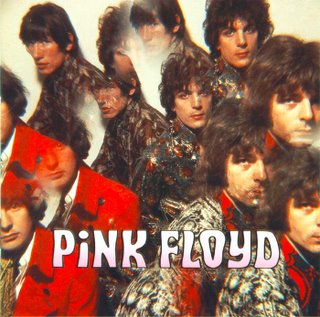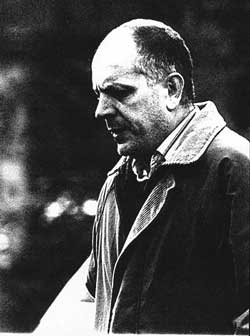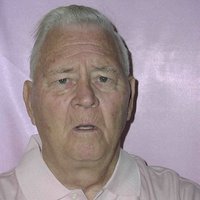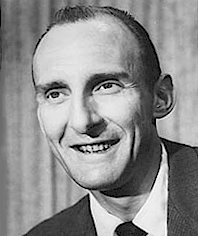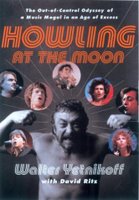
Following another day of the same sanctimonious and empty gestures from our Fearless Leader, Keith Olbermann did it again. He's been on fire lately this season as the anti-Democrat/pro-fear rhetoric has ratcheted up yet again, and this is quite possibly the best special commentary he has done since his classic post-Katrina piece excoriating the government's clueless response to that epic disaster.
The full transcript of his words follows this paragraph, but I highly reccommend watching the video of this seething commentary (posted here) to get the full effect.
Half a lifetime ago, I worked in this now-empty space. And for 40 days after the attacks, I worked here again, trying to make sense of what happened, and was yet to happen, as a reporter.
All the time, I knew that the very air I breathed contained the remains of thousands of people, including four of my friends, two in the planes and -- as I discovered from those "missing posters" seared still into my soul -- two more in the Towers.
And I knew too, that this was the pyre for hundreds of New York policemen and firemen, of whom my family can claim half a dozen or more, as our ancestors.
I belabor this to emphasize that, for me this was, and is, and always shall be, personal.
And anyone who claims that I and others like me are "soft,"or have "forgotten" the lessons of what happened here is at best a grasping, opportunistic, dilettante and at worst, an idiot whether he is a commentator, or a Vice President, or a President.
However, of all the things those of us who were here five years ago could have forecast -- of all the nightmares that unfolded before our eyes, and the others that unfolded only in our minds -- none of us could have predicted this.
Five years later this space is still empty.
Five years later there is no memorial to the dead.
Five years later there is no building rising to show with proud defiance that we would not have our America wrung from us, by cowards and criminals.
Five years later this country's wound is still open.
Five years later this country's mass grave is still unmarked.
Five years later this is still just a background for a photo-op.
It is beyond shameful.
At the dedication of the Gettysburg Memorial -- barely four months after the last soldier staggered from another Pennsylvania field -- Mr. Lincoln said, "we cannot dedicate, we cannot consecrate, we cannot hallow this ground. The brave men, living and dead, who struggled here, have consecrated it, far above our poor power to add or detract."
Lincoln used those words to immortalize their sacrifice.
Today our leaders could use those same words to rationalize their reprehensible inaction. "We cannot dedicate, we can not consecrate, we can not hallow this ground." So we won't.
Instead they bicker and buck pass. They thwart private efforts, and jostle to claim credit for initiatives that go nowhere. They spend the money on irrelevant wars, and elaborate self-congratulations, and buying off columnists to write how good a job they're doing instead of doing any job at all.
Five years later, Mr. Bush, we are still fighting the terrorists on these streets. And look carefully, sir, on these 16 empty acres. The terrorists are clearly, still winning.
And, in a crime against every victim here and every patriotic sentiment you mouthed but did not enact, you have done nothing about it.
And there is something worse still than this vast gaping hole in this city, and in the fabric of our nation. There is its symbolism of the promise unfulfilled, the urgent oath, reduced to lazy execution.
The only positive on 9/11 and the days and weeks that so slowly and painfully followed it was the unanimous humanity, here, and throughout the country. The government, the President in particular, was given every possible measure of support.
Those who did not belong to his party -- tabled that.
Those who doubted the mechanics of his election -- ignored that.
Those who wondered of his qualifications -- forgot that.
History teaches us that nearly unanimous support of a government cannot be taken away from that government by its critics. It can only be squandered by those who use it not to heal a nation's wounds, but to take political advantage.
Terrorists did not come and steal our newly-regained sense of being American first, and political, fiftieth. Nor did the Democrats. Nor did the media. Nor did the people.
The President -- and those around him -- did that.
They promised bi-partisanship, and then showed that to them, "bi-partisanship" meant that their party would rule and the rest would have to follow, or be branded, with ever-escalating hysteria, as morally or intellectually confused, as appeasers, as those who, in the Vice President's words yesterday, "validate the strategy of the terrorists."
They promised protection, and then showed that to them "protection" meant going to war against a despot whose hand they had once shaken, a despot who we now learn from our own Senate Intelligence Committee, hated al-Qaida as much as we did.
The polite phrase for how so many of us were duped into supporting a war, on the false premise that it had 'something to do' with 9/11 is "lying by implication."
The impolite phrase is "impeachable offense."
Not once in now five years has this President ever offered to assume responsibility for the failures that led to this empty space, and to this, the current, curdled, version of our beloved country.
Still, there is a last snapping flame from a final candle of respect and fairness: even his most virulent critics have never suggested he alone bears the full brunt of the blame for 9/11.
Half the time, in fact, this President has been so gently treated, that he has seemed not even to be the man most responsible for anything in his own administration.
Yet what is happening this very night?
A mini-series, created, influenced -- possibly financed by -- the most radical and cold of domestic political Machiavellis, continues to be televised into our homes.
The documented truths of the last fifteen years are replaced by bald-faced lies; the talking points of the current regime parroted; the whole sorry story blurred, by spin, to make the party out of office seem vacillating and impotent, and the party in office, seem like the only option.
How dare you, Mr. President, after taking cynical advantage of the unanimity and love, and transmuting it into fraudulent war and needless death, after monstrously transforming it into fear and suspicion and turning that fear into the campaign slogan of three elections? How dare you -- or those around you -- ever "spin" 9/11?
Just as the terrorists have succeeded -- are still succeeding -- as long as there is no memorial and no construction here at Ground Zero.
So, too, have they succeeded, and are still succeeding as long as this government uses 9/11 as a wedge to pit Americans against Americans.
This is an odd point to cite a television program, especially one from March of 1960. But as Disney's continuing sell-out of the truth (and this country) suggests, even television programs can be powerful things.
And long ago, a series called "The Twilight Zone" broadcast a riveting episode entitled "The Monsters Are Due On Maple Street."
In brief: a meteor sparks rumors of an invasion by extra-terrestrials disguised as humans. The electricity goes out. A neighbor pleads for calm. Suddenly his car -- and only his car -- starts. Someone suggests he must be the alien. Then another man's lights go on. As charges and suspicion and panic overtake the street, guns are inevitably produced. An "alien" is shot -- but he turns out to be just another neighbor, returning from going for help. The camera pulls back to a near-by hill, where two extra-terrestrials are seen manipulating a small device that can jam electricity. The veteran tells his novice that there's no need to actually attack, that you just turn off a few of the human machines and then, "they pick the most dangerous enemy they can find, and it's themselves."
And then, in perhaps his finest piece of writing, Rod Serling sums it up with words of remarkable prescience, given where we find ourselves tonight: "The tools of conquest do not necessarily come with bombs and explosions and fallout. There are weapons that are simply thoughts, attitudes, prejudices, to be found only in the minds of men.
"For the record, prejudices can kill and suspicion can destroy, and a thoughtless, frightened search for a scapegoat has a fallout all its own -- for the children, and the children yet unborn."
When those who dissent are told time and time again -- as we will be, if not tonight by the President, then tomorrow by his portable public chorus -- that he is preserving our freedom, but that if we use any of it, we are somehow un-American...When we are scolded, that if we merely question, we have "forgotten the lessons of 9/11"... look into this empty space behind me and the bi-partisanship upon which this administration also did not build, and tell me:
Who has left this hole in the ground?
We have not forgotten, Mr. President.
You have.
May this country forgive you.


 As expected, I apparently make too much money for the feds to write off the charges incurred by
As expected, I apparently make too much money for the feds to write off the charges incurred by  Making matters worse, the policeman returned to my car after writing the ticket and asked me if I knew that my driver's license had expired. "That's incorrect, sir" I said, looking at the card in his hand with some irritation, "it doesn't expire until two thousand and...six..." Oops again. So, I was handed a ticket for 41 in a 25 and an expired license, and was pretty steamed at this development, but at the same time thankful that I was allowed to drive home instead having my car towed on the spot (which he was certainly in his right to do as I had just nailed The Stupidity Trifecta) and thus forcing me to get a ride in the middle of a downpour at 2 AM.
Making matters worse, the policeman returned to my car after writing the ticket and asked me if I knew that my driver's license had expired. "That's incorrect, sir" I said, looking at the card in his hand with some irritation, "it doesn't expire until two thousand and...six..." Oops again. So, I was handed a ticket for 41 in a 25 and an expired license, and was pretty steamed at this development, but at the same time thankful that I was allowed to drive home instead having my car towed on the spot (which he was certainly in his right to do as I had just nailed The Stupidity Trifecta) and thus forcing me to get a ride in the middle of a downpour at 2 AM. Months after
Months after  Despite some genuinely creepy monsters and set-pieces scattered around the first 20 shows, Ultraman comes off as a lot more overtly kid-aimed than I'd remembered. I realize that this isn't exactly an amazing observation concerning a show that features stunt performers in silly rubber monster suits getting their asses kicked on a weekly basis by another guy in a skin tight silver getup, but bear with me a bit. Unlike Johnny Sokko, whose characters were taciturn and businesslike with only rare occasions where they engaged in comedy, there are times watching Ultraman when you wonder exactly who selects agents for Science Patrol duty, especially if such clods as Ito (an electronics whiz who comes off like a Japanese version of Jerry Lewis), Irashi (a hot-headed dolt who wants to blast everything in sight with his two-handled ray gun), and the obligatory "troublemaking kid character" Hoshino somehow made the grade.
Despite some genuinely creepy monsters and set-pieces scattered around the first 20 shows, Ultraman comes off as a lot more overtly kid-aimed than I'd remembered. I realize that this isn't exactly an amazing observation concerning a show that features stunt performers in silly rubber monster suits getting their asses kicked on a weekly basis by another guy in a skin tight silver getup, but bear with me a bit. Unlike Johnny Sokko, whose characters were taciturn and businesslike with only rare occasions where they engaged in comedy, there are times watching Ultraman when you wonder exactly who selects agents for Science Patrol duty, especially if such clods as Ito (an electronics whiz who comes off like a Japanese version of Jerry Lewis), Irashi (a hot-headed dolt who wants to blast everything in sight with his two-handled ray gun), and the obligatory "troublemaking kid character" Hoshino somehow made the grade.
